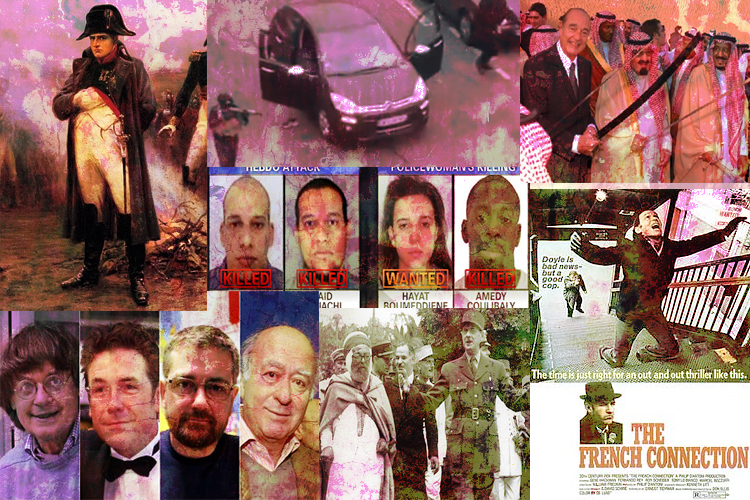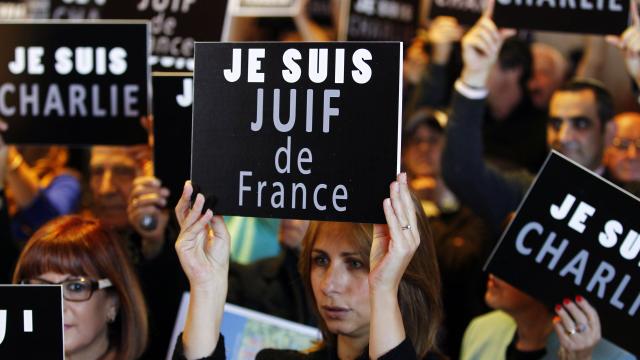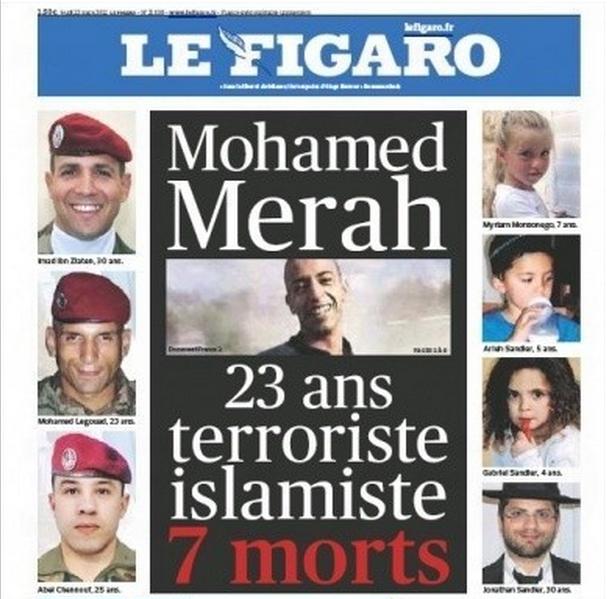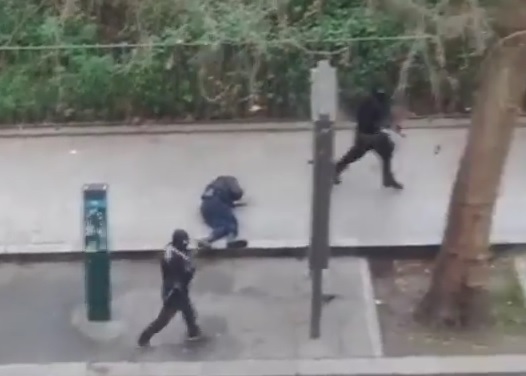The new year of 2015 had just set in when Paris was rocked by a massacre which left seventeen dead. The satirical magazine Charlie Hebdo had outraged Muslims worldwide with its mocking of Islam’s founder. But the attackers were not some foreign illegals who had snuck into the country. They were French-raised and born. In fact the hero of this nightmare was in fact a Muslim immigrant from Mali.
France likes to think of itself as more enlightened than Britain and America in both its domestic and foreign policy. It tries to offer an intellectual alternative to the brash capitalism of the dominant Anglo-Saxon powers with which it has vied for international stature. The Rights of Man were promulgated by the French Revolution in a decisive break with feudalism and privilege. But in reality has France really offered an alternative? From examining historical facts much of what we call radical Islam has extensive roots in both political theory and practice of French statecraft, intellectual constructs and adherence to a dogma that is akin to monotheism defined by national boundaries rather than cosmic precepts. France has rigorously enforced secularism against any outward display of religion, especially Islamic headscarves. Yet it has backed jihad in Syria. Its crushing of religious and ethnic minority identity has led to a monstrous chimera that actually thrives on radical Islam.
“J’accuse …!” (“I accuse”) was an open letter published on 13 January 1898 in the newspaper L’Aurore by the influential French writer Émile Zola. In the letter, Zola addressed President Félix Faure and accused the government of anti-Semitism and the unlawful jailing of Alfred Dreyfus, a French Army General Staff officer who was sentenced to lifelong penal servitude for espionage. Zola pointed out judicial errors and lack of serious evidence. The letter was printed on the front page of the newspaper and caused a stir in France and abroad. Zola was prosecuted for and found guilty of libel on 23 February 1898. To avoid imprisonment, he fled to England, returning home in June 1899. He began:
“The truth I will say, because I promised to say it, if justice, regularly seized, did not do it, full and whole. My duty is to speak, I do not want to be an accomplice. My nights would be haunted by the spectre of innocence that suffer there, through the most dreadful of tortures, for a crime it did not commit.”
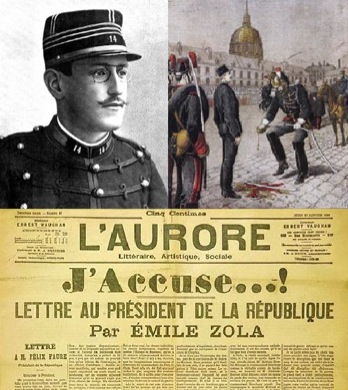
Having explained the miscarriage of justice which led to the incarceration of Captain Dreyfus, Zola concluded:
“I have only one passion, that of the light, in the name of humanity which has suffered so much and is entitled to happiness. My ignited protest is nothing more than the cry of my heart. So may one dare bring me to criminal court, and may the investigation take place in broad daylight!”
The 1898 article by Émile Zola is widely marked in France as the most prominent manifestation of the new power of the intellectuals in shaping public opinion, the media and state policy. Writers always enjoyed a special status in France, especially since the Revolution of 1789, when wielding the pen was as powerful as using the sword. Due the importance of literacy, intellectuals were accorded great respect and played a special role in French society. Entry to the elite grands écoles would guarantee them a salary for life. The image of the French thinker, siting in the coffee shop, in a thick tobacco haze as he draws on his Gaulois has long portrayed this image – at least until the ban on smoking in public places.
This is of profound importance now when one stands aghast in horror at the massacre which took place in Paris against the staff of Charlie Hebdo magazine and the Jewish supermarket, fortified by an ideology every bit as toxic and nefarious as the anti-Semitism and biologically determinist and organic French nationalism which haunted Zola and persecuted Dreyfus. These attacks on 9 January 2015 killed seventeen innocent people. They fired up to 50 shots at staff of the magazine offices, while shouting “Allahu Akbar”. A massive manhunt led to the discovery on 9 January of the suspects, brothers Saïd and Chérif Kouachi, who exchanged fire with police. The brothers took hostages at a signage company in Dammartin-en-Goële, and were gunned down when they emerged firing from the building. The same day Amedy Coulibaly and Hayat Boumeddiene were at a kosher supermarket engaged in a ‘sympathy’ hostage taking. Boumedienne married Coulibaly in 2009 in an Islamic ceremony that is not recognized by French law, and turned from ‘bikini babe’ to holy warrior.
In March 2102 Mohammed Merah went on a rampage against Jews and the French state. At about 8:00am on 19 March, Merah drove up to the Ozar Hatorah school on his motorcycle, and shot a rabbi and a teacher. The terrorist then shot one of the boys as he crawled away, as his father and brother lay dying on the pavement. He then walked into the schoolyard, chasing people into the building. He chased an 8-year-old girl into the courtyard, caught her by her hair and raised a gun to shoot her. The gun jammed at this point and he changed weapons from what the police identified as a 9mm pistol to a .45 calibre gun, and shot the girl in her temple at point-blank range. The killings spurred one of the biggest manhunts in modern French history. Four days earlier Merah had shot at three paratroopers. Corporal Abel Chennouf, 24, and Private Mohamed Legouad, 23, both of North African origin, were killed. Corporal Loïc Liber, 28, from Guadeloupe, was left in a coma. On 22 March, Merah called the French television channel France 24 and Ebba Kalondo, the editor who spoke with him, and confessed, “these acts were not only necessary, but that they were to uphold the honour of Islam.” He was later killed by police when he exchanged gunfire. Merah said that he was motivated by France’s ban on wearing the burqa, that “the Jews have killed our brothers and sisters in Palestine.” But accounts speak of a man who went to nightclubs, was involved in petty crime and actively avoided the mosque. Amedy Coulibaly himself was killed during the violent end of the siege, in which he killed four hostages.
It is also necessary in order to understand why the jihadi attack on Mumbai in December 2008 did not provoke the same outrage. Where were the peace marches by world leaders in India when Lashkar-e-Toiba launched its attack by sea, brazenly from Pakistan: that faithful ally of America, Britain and France? Perhaps it is because with regards to India, France’s leading ‘expert’ is Christophe Jaffrelot. He is director of the Centre d’études et de recherches internationales (CERI) at Sciences Po and director of research at the Centre national de la recherche scientifique (CNRS), as well as being visiting professor at the India Institute, King’s College London and a Global Scholar the Princeton University. He is the senior editor of the Sciences Po book series, Comparative Politics and International Relations published by C. Hurst & Co. He has been the editor-in-chief of Critique Internationale and serves on the editorial boards of Nations and Nationlism and International Political Sociology. He is also on the editorial board of The Online Encyclopaedia of Mass Violence. Jaffrelot’s research is centred on South Asia, focusing on the aspects of nationalism and democracy, Hindu nationalism, caste mobilisation in politics and ethnic conflicts. With titles like The Hindu Nationalist Movement and Indian politics, it will be no surprise where his prejudices lie. For example, on 1 September 2010 he wrote this piece in The Caravan, an Indian publication dedicated to narrative journalism:
I’m prepared to admit that acts of Hindu nationalist terrorism have killed less people than those of Islamists—even though the list of Hindu nationalists attacks may be longer than the couple of cases mentioned above: Mecca Masjid and the Ajmer Dargah. But what is at stake here is the resilience of the rule of law.
Yet in the very next paragraph he then takes issue with these very facts:
It’s possible that the Indian state may be downplaying violent activities by Hindu nationalists. Already, many such perpetrators of violence in recent anti-Muslim riots, including those in Gujarat, have gotten away with it. If terrorist actions targeting the Muslim minority are not punished, India may give the impression that some citizens are above the law and can kill without fear of punishment, provided they target minorities. Such an evolution would result in an unofficial ethno-democracy (in contrast with a country like Israel which is an official one).
His stark warning?
This politics of denial—or worse, the legitimisation of Hindu nationalist violence is bound to be counterproductive. Inequality before the law will generate additional frustrations among Muslim youth, preparing the ground for the recruitment of new militants by Islamist organisations. Justice, on the contrary, can defuse resentment and the desire to take revenge.
http://caravanmagazine.in/perspectives/hindutva%E2%80%99s-politics-denial#sthash.kQD1jT9g.dpuf
Desire to take revenge? Frustration among Muslim youth? Perhaps he should look in his own back yard before preaching to others. Jaffrelot has every right to his opinion. But if this is the best France can produce out of its much vaunted intellectual climate, it is not even a very well manufactured copy of the very Anglosphere bias against India which remains mainstream media fodder.

